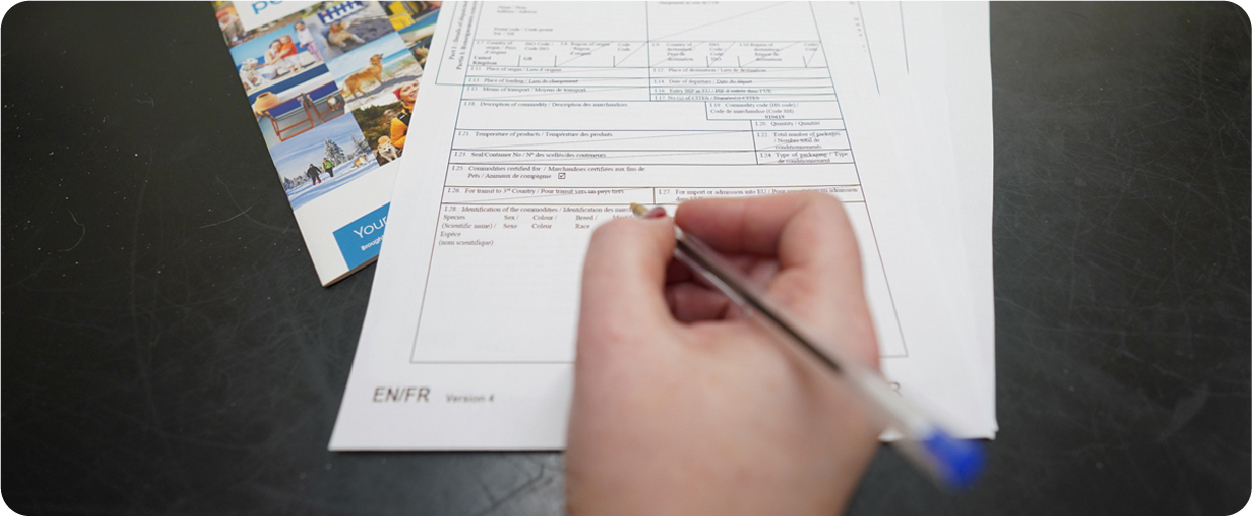Travelling with pets can be an exciting prospect but requires some forward planning to make sure you are well prepared before starting your journey.
Animal Health Certificates
An Animal Health Certificate (or AHC) is now required to travel to EU countries. The AHC can only be completed by Government Certified Veterinary Surgeons. Milton Keynes Veterinary Group is fortunate to have several veterinary surgeons who are able to complete the paperwork required for travel, but it’s important that you allow sufficient time to book the required steps when you are arranging to travel.
An hour-long appointment will be required at the surgery to issue the final paperwork so please speak to our client care team before booking. Providing your pet is up to date with their Rabies vaccination, we recommend contacting us with at least two weeks’ notice before your planned travel date. This gives us the best chance to complete your appointment within the required timeframe.
If your pet has not yet received their Rabies vaccination, or it has expired, then we recommend contacting us to book in at least two months before your planned travel date.
When you book in, our client care team will send over an information sheet with a section for you to complete and return ahead of your appointment. This will give our vet the key information they need to start filling in your AHC, so it’s vital this is filled in accurately.
Regulations for EU travel
- Your pet must be microchipped
- Your pet must have a valid rabies vaccination. You must wait 21 days from the date of the Rabies vaccination before the AHC can be completed and you can leave the UK (date of vaccination is day 0)
- Your AHC is only valid for one visit to the European Union (EU) and for entry into the EU via the “point of entry” country you have stated (the AHC is dual language for that country only)
- Your AHC is only valid for entry into the EU for ten days after the date of issue
- Your AHC is valid for travel within the EU and your return to the UK for four months after the date of issue (if the animal remains in the EU for longer than four months then new paperwork will need to be issued by a vet in the EU to allow return to the UK)
- Dogs returning to the UK are required to have tapeworm treatment administered by a vet one to five days prior to entering the UK and for that treatment to be entered in the table on the AHC
To ensure trouble-free travel it is essential that you familiarise yourself with current regulations by visiting https://www.gov.uk/taking-your-pet-abroad. If you have any questions, or would like to book a travel related appointment, please contact our client care team and we will be happy to help.
Travel outside of the EU
Travel requirements for countries outside of the EU vary greatly depending on your destination, and these time schedules may increase. If you are planning to visit anywhere outside the EU, please make sure you contact us as soon as possible so we can investigate the additional measures required and help you plan correctly.
Diseases your pet may be at risk from whilst abroad:

